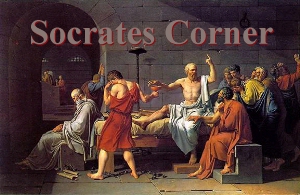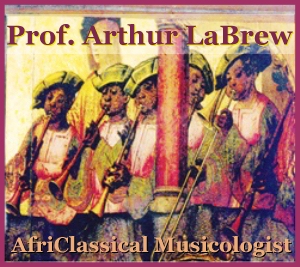Tag: philosophy
Symposium—On The Clouds, Logic, and the Academy

“Open your mind before your mouth.” ~ Aristophanes “I cannot teach anybody anything, I can only make them think.” ~ Socrates *N.B.: This is my first attempt at utilizing the Socratic dialectical style of writing which my father, Professor Ellis Washington, resurrected from obscurity and employed in hundreds of dialectical essays for over 20 years […]
Symposium–The God of the night before

Socrates (470-399 B.C.) was a famous Greek philosopher from Athens, who taught Plato, and Plato taught Aristotle, and Aristotle taught Alexander the Great. Socrates used a simple but cleverly profound method of teaching by asking penetrating, revelatory, and psychologically probing questions. The Greeks called this form Dialectic – starting from a thesis or question, then […]
Symposium–Your faith must stand trial

Socrates (470-399 B.C.) was a famous Greek philosopher from Athens, who taught Plato, and Plato taught Aristotle, and Aristotle taught Alexander the Great. Socrates used a simple but cleverly profound method of teaching by asking penetrating, revelatory, and psychologically probing questions. The Greeks called this form Dialectic – starting from a thesis or question, then […]
Symposium–Get in the birth position

Socrates (470-399 B.C.) was a famous Greek philosopher from Athens, who taught Plato, and Plato taught Aristotle, and Aristotle taught Alexander the Great. Socrates used a simple but cleverly profound method of teaching by asking penetrating, revelatory, and psychologically probing questions. The Greeks called this form Dialectic – starting from a thesis or question, then […]
Symposium–This is your time

Socrates (470-399 B.C.) was a famous Greek philosopher from Athens, who taught Plato, and Plato taught Aristotle, and Aristotle taught Alexander the Great. Socrates used a simple but cleverly profound method of teaching by asking penetrating, revelatory, and psychologically probing questions. The Greeks called this form Dialectic – starting from a thesis or question, then […]
Symposium–God’s gonna make you laugh

Socrates (470-399 B.C.) was a famous Greek philosopher from Athens, who taught Plato, and Plato taught Aristotle, and Aristotle taught Alexander the Great. Socrates used a simple but cleverly profound method of teaching by asking penetrating, revelatory, and psychologically probing questions. The Greeks called this form Dialectic – starting from a thesis or question, then […]
Symposium–detours of destiny

Socrates (470-399 B.C.) was a famous Greek philosopher from Athens, who taught Plato, and Plato taught Aristotle, and Aristotle taught Alexander the Great. Socrates used a simple but cleverly profound method of teaching by asking penetrating, revelatory, and psychologically probing questions. The Greeks called this form Dialectic – starting from a thesis or question, then […]
Symposium–He loved me enough to be late

Socrates (470-399 B.C.) was a famous Greek philosopher from Athens, who taught Plato, and Plato taught Aristotle, and Aristotle taught Alexander the Great. Socrates used a simple but cleverly profound method of teaching by asking penetrating, revelatory, and psychologically probing questions. The Greeks called this form Dialectic – starting from a thesis or question, then […]
Symposium–Satan, the blood is against you

Socrates (470-399 B.C.) was a famous Greek philosopher from Athens, who taught Plato, and Plato taught Aristotle, and Aristotle taught Alexander the Great. Socrates used a simple but cleverly profound method of teaching by asking revelatory, psychologically probing questions. The Greeks called this form Dialectic – starting from a thesis or question, then discussing ideas […]





Symposium — ask big vs. the prayers of slaves
Israelites leaving Egypt (1828) by David Roberts – Music by G. F. Handel They prayed from a slave mentality, from a limited mindset. Instead of asking to be free from their oppressors, they were asking to become better slaves. Instead of praying for what God promised them – ‘the land flowing with milk and honey,’ […]
Continue Reading